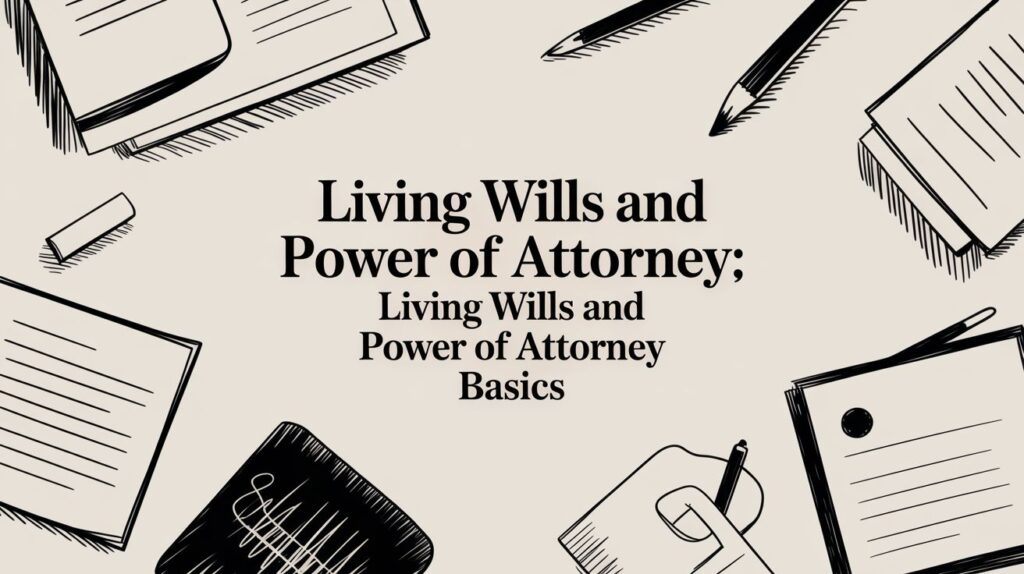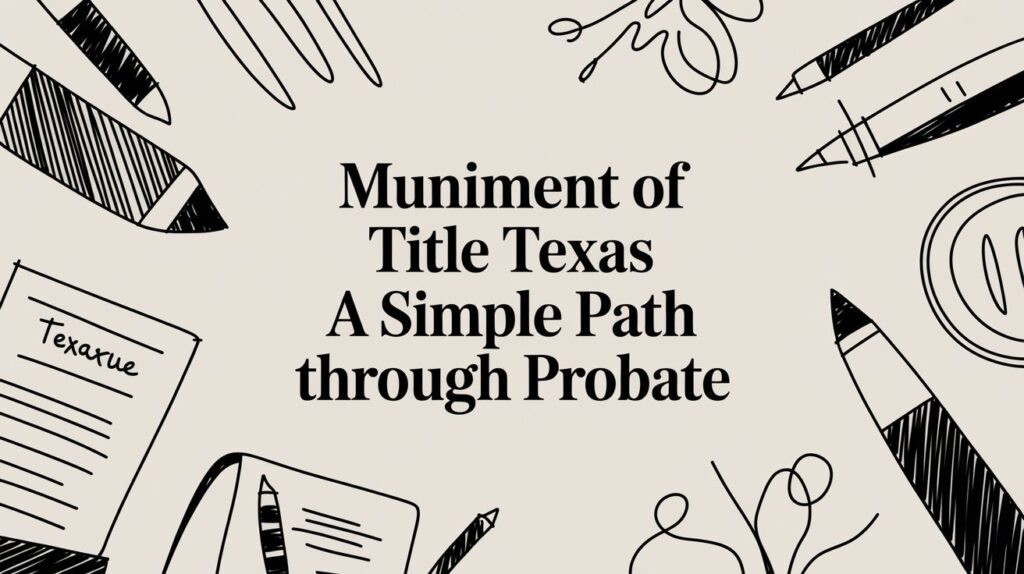When a loved one passes away, the last thing anyone wants to deal with is a tangled legal mess. But unfortunately, that’s exactly what many families encounter when navigating probate. The process is designed to manage the distribution of a deceased person’s estate, but it often becomes complicated, expensive, and emotionally draining. If you’re looking to avoid unnecessary stress, knowing the common probate process pitfalls to avoid can make a world of difference.
In this comprehensive guide, we’ll walk you through the probate process, highlighting frequent mistakes, misunderstood rules, and real-life missteps that have cost families dearly. We’ll also break down strategies for steering clear of trouble. Whether you’re the executor of an estate, a beneficiary, or someone planning ahead for your own affairs, understanding these probate process pitfalls is your best defense.

What Is Probate, Really?
It’s More Than Just a Court Process
Probate is the legal procedure through which a deceased person’s will is validated (if there is one), debts are paid, and assets are distributed. It typically involves:
- Filing the will with theprobate court
- Notifying creditors and heirs
- Appointing an executor or administrator
- Inventorying the estate
- Paying taxes and debts
- Distributing the remaining property
Sounds simple enough, right? In theory, yes. But in reality, probate can take months—or even years—and become a breeding ground for family tension, legal battles, and administrative headaches. That’s why it’s crucial to recognize the common probate process pitfalls to avoid before you’re knee-deep in trouble.
Pitfall #1: Failing to Locate the Will
The Search That Starts It All
One of the first and most avoidable probate mistakes is not locating the will quickly. You’d be surprised how often this happens. Sometimes the will is locked away in a safe, buried in a file cabinet, or worse—misplaced entirely. If no will is found, the estate is treated as intestate, meaning assets are distributed according to state law.
Real Example:
Susan passed away in Houston. Her children knew she had a will but didn’t know where she kept it. It took them three months to find it—during which time creditors filed claims and a distant cousin attempted to file for administrator rights. A clear case of why failing to locate the will is one of the most preventable probate process pitfalls.
Avoid it by:
- Asking your loved ones where they store important documents
- Keeping copies with an attorney or in a digital safe
- Making sure someone trustworthy knows how to access them
Pitfall #2: Delays in Filing the Probate Petition
Time Is Not on Your Side
Probate doesn’t open itself. You must file a petition with the court to begin the process. Delaying this can allow other parties—like creditors or disputing relatives—to step in and create legal hurdles. In some states, failing to file within a certain timeframe could even jeopardize your ability to be appointed executor.
Why it matters:
Delays can freeze accounts, hold up funeral payments, or let debts accumulate interest. Plus, family members may become suspicious or resentful, especially if they think someone is hiding something.
Avoid it by:
- Contacting a probate attorney as soon as death occurs
- Gathering documents early (death certificate, will, etc.)
- Filing the initial paperwork promptly and correctly
:max_bytes(150000):strip_icc()/organizing-a-home-filing-system-2648257_01_gatherpapers_3245-5e99eeb1854d4cb1a3ad9dbd824b2c04.jpg)
Among the common probate process pitfalls to avoid, procrastination is one of the most damaging—and completely within your control.
Pitfall #3: Mismanaging Estate Assets
When Good Intentions Go Wrong
Once appointed as executor or administrator, you’re responsible for managing the estate. That includes securing property, collecting accounts, and keeping records. But what many don’t realize is that this role carries legal and financial liability.
Common mistakes include:
- Co-mingling estate funds with personal accounts
- Failing to maintain property (e.g., letting a house fall into disrepair)
- Selling or giving away items without court approval
- Making distributions before debts and taxes are paid
Real Example:
David was appointed executor of his father’s estate. He started paying bills out of his own account and later reimbursed himself from the estate without keeping receipts. A disgruntled sibling sued him for mismanagement. The court agreed—and David ended up personally liable for over $10,000.
Avoid it by:
- Opening a separate estate account
- Keeping detailed records of every transaction
- Consulting with professionals before taking financial actions
If you want to stay clear of legal trouble, add “avoiding mismanagement” to your list of common probate process pitfalls to avoid.
Pitfall #4: Ignoring Creditor Claims
Debts Don’t Die with the Person
Many executors think they can just start distributing assets after someone passes. But before heirs get anything, creditors must be notified and given a chance to file claims. Skipping this step—or failing to respond—can lead to serious consequences.
What can happen:
- You may become liable for the debts
- The estate could be reopened after it’s closed
- Assets might have to be clawed back from heirs
Avoid it by:
- Publishing a notice to creditors as required by law
- Reviewing all submitted claims carefully
- Paying debts in the proper order of priority
Failing to handle debts properly is not just a paperwork error—it can derail the entire estate plan. It’s easily one of the most dangerous probate process pitfalls to avoid.
Pitfall #5: Family Conflicts and Legal Disputes
When Emotions Override Logic
Probate court often exposes or worsens existing family tensions. Disputes over heirlooms, interpretations of the will, or allegations of undue influence can turn probate into a battleground. And once a dispute goes to court, it can drag on for years and cost tens of thousands in legal fees.
Real Example:
In San Antonio, three siblings fought over their mother’s home. One claimed she was promised it; the others insisted it be sold and split. The battle lasted over two years and ate up 40% of the estate in legal fees.
Avoid it by:
- Keeping communication open with beneficiaries
- Using neutral third-party mediators
- Documenting everything to prevent misunderstandings
While you can’t always prevent family conflict, you can minimize it with transparency and professionalism.
Pitfall #6: Not Understanding State-Specific Probate Rules
What Works in One State May Fail in Another
Probate laws vary from state to state. Texas, for instance, allows independent administration, which can streamline the process if the will allows it. Other states may require formal probate with more court oversight. Not knowing these distinctions can lead to unnecessary delays or rejections.
Avoid it by:
- Researching your state’s probate code
- Hiring a local probate attorney who knows the system
- Understanding deadlines, forms, and required procedures

Overlooking state rules is one of the more subtle but critical probate process pitfalls to avoid—especially if you’re managing an estate across state lines.
Pitfall #7: Overlooking Taxes
Yes, There Are Still Taxes After Death
Even in death, taxes remain. Executors must file a final income tax return for the deceased and may also need to handle estate tax returns if the estate is large enough. Failing to do this can result in IRS penalties or personal liability for unpaid taxes.
Common tax-related missteps:
- Missing filing deadlines
- Failing to account for capital gains
- Not paying property taxes on inherited real estate
- Forgetting to report investment income
Avoid it by:
- Consulting a tax professional with estate experience
- Keeping track of all estate income and expenses
- Filing all required forms on time
Taxes are often the last thing grieving families want to think about, but they’re unavoidable—and failing to handle them correctly can be costly.
Pitfall #8: Distributing Assets Too Early
Don’t Count the Eggs Before They Hatch
Many executors feel pressure to distribute assets quickly, especially if beneficiaries are waiting on money. But doing this before clearing debts, taxes, and court approvals can lead to major headaches.
Consequences include:
- Having to ask heirs to return funds
- Being sued by creditors or other beneficiaries
- Personal liability for financial shortfalls
Avoid it by:
- Waiting for court permission before final distribution
- Keeping a cushion in the estate account
- Providing a final accounting before payout
Being patient isn’t just wise—it’s a legal safeguard. Premature distribution is a probate landmine, making it one of the most dangerous probate process pitfalls to avoid.
Pitfall #9: DIY Probate Without Legal Help
When Saving Money Costs More
The internet is full of templates and guides for do-it-yourself probate, and while some small estates can be handled solo, most benefit from legal guidance. A good attorney helps you avoid all the pitfalls we’ve mentioned—and often saves money in the long run.
Signs you need legal help:
- There’s no will
- The estate includes real estate or business assets
- Beneficiaries are fighting
- The estate owes taxes or debts
Avoid it by:
- Interviewing a few probate lawyers before choosing one
- Asking for flat-fee services if cost is a concern
- Being honest about what you don’t know
Sometimes the best way to avoid probate pitfalls is to admit when you’re in over your head.

Final Thoughts: Common Probate Process Pitfalls to Avoid
The probate process can be overwhelming, but with the right approach, you can avoid the most damaging mistakes. From delays in filing to premature asset distribution, each misstep comes with consequences—some that last years.
By learning about the common probate process pitfalls to avoid, you’re taking a proactive step toward protecting your loved one’s legacy and ensuring the legal system doesn’t make an already hard time even harder.
Probate doesn’t have to be a nightmare. With careful planning, honest communication, and timely action, you can manage it smoothly—and with your sanity intact.








